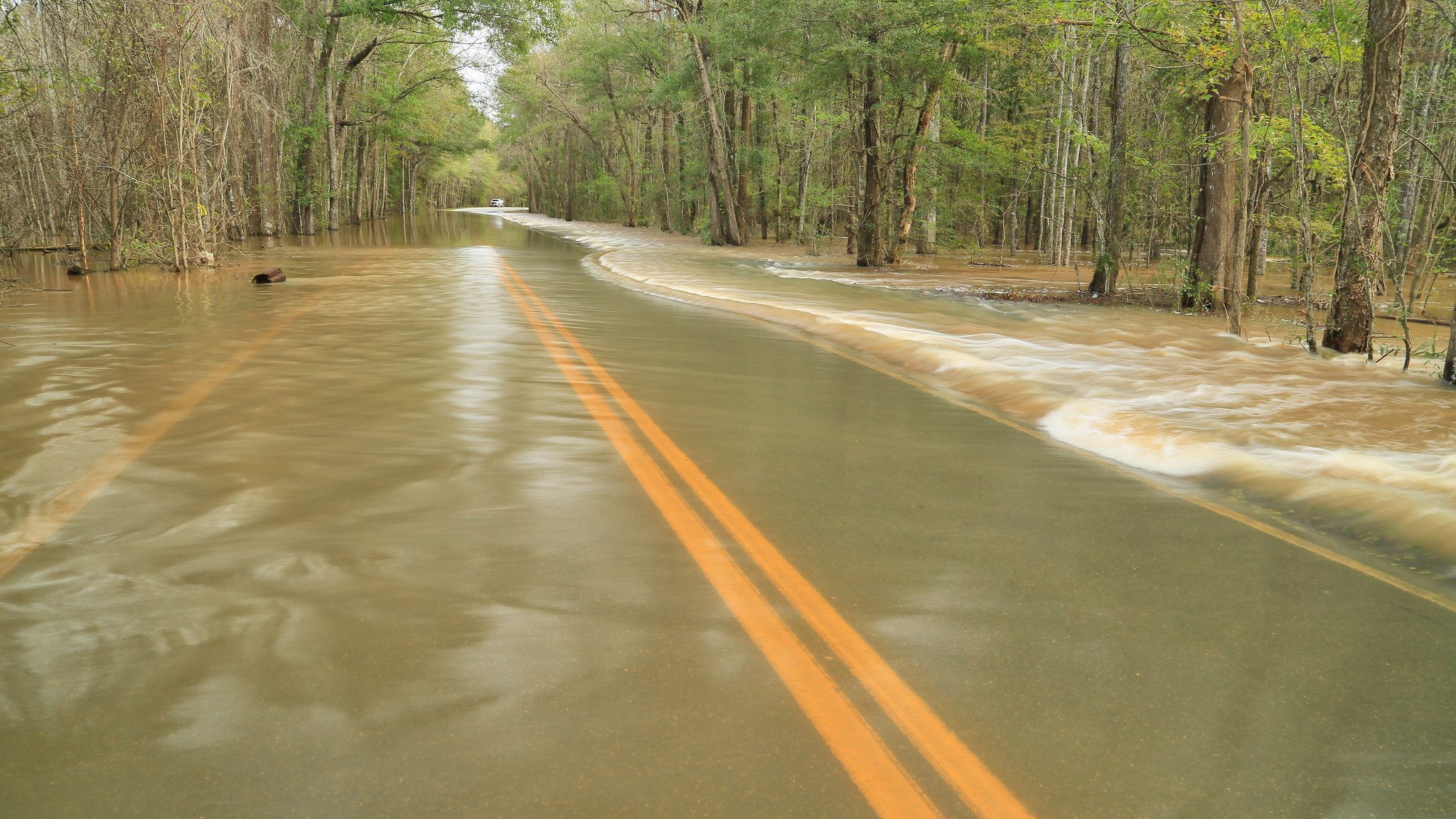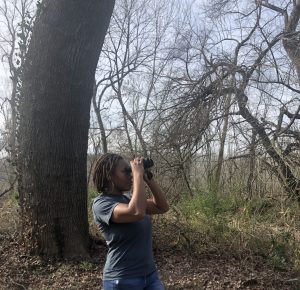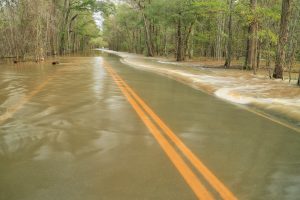June 2020 Newsletter

June 2020 Newsletter
Welcome to the Southeast Climate Adaptation Science Center’s June 2020 Newsletter.
For news and upcoming events related to the Southeast Climate Adaptation Science Center,
subscribe to our monthly newsletter.
SE CASC News | Resources | Publications | Tribal News | Partner News | Webinars | Events | Opportunities

Southeast Climate Adaptation Science Center News
We at the Southeast Climate Adaptation Science Center stand firmly against the systemic structural racism that has pervaded U.S. institutions and society for centuries, causing injustice and suffering of Black, Indigenous, and other communities of color in our country. We recognize that impacts from climate change fall disproportionately on marginalized communities, and that including a multiplicity of people and ideas improves our work; this drives us to recommit to cultivating a diverse community of scientists and partners and to use those perspectives to develop long-term solutions to environmental and societal challenges, such as climate adaptation. We invite you to join us.

2018-19 Global Change Fellow and Graduate Student Intern, Deja Perkins, co-organized #BlackBirdersWeek social media activities, which highlighted activities of Black birders and naturalists and challenges related to racism in the field. Learn more.
The third webinar in our SE CASC & South Atlantic Spring/ Summer Science Series, Clarifying Science Needs for Southeastern Grasslands: The Piedmont, Coastal Plain, and Beyond, will be presented by Dwayne Estes (Southeastern Grasslands Initiative), Jennifer Cartwright (USGS), and Rua Mordecai (US FWS), on Thursday, June 18, 10 am ET. Learn more and register.
If you missed last month’s SE CASC & South Atlantic Spring/ Summer Science Series webinar presented by USGS Research Ecologist, Mitch Eaton titled, Building Adaptive Capacity in a Coastal Region Experiencing Global Change, view a recording of the presentation here.
The Natural Working Lands Action Plan, a product developed by the North Carolina’s Natural and Working Lands stakeholder group was recently released as an appendix to the North Carolina Climate Risk Assessment and Resilience Plan. Learn more about this report and additional resources, including downloadable datasets and Story Maps here.
SE CASC Research Ecologist, Adam Terando is lead author and SE CASC Acting USGS Director, David Reidmiller is a co-author of Using Information From Global Climate Models to Inform Policymaking—The Role of the U.S. Geological Survey, which helps managers assess risks associated with observed and projected changes in climate so that adaptation and mitigation activities can be evaluated and implemented. Learn more.
SE CASC Faculty Affiliate and North Carolina State Climatologist, Kathie Dello was interviewed by Coastal Review Online as part of the Pulitzer Center’s nationwide Connected Coastlines reporting initiative. Learn more.
2013-2014 Global Change Fellow, Jennifer Niemuth is lead author and SE CASC Faculty Affiliates, Stacy Nelson and Michael Stoskopf are co-authors of Using Random Forest Algorithm to Model Cold Stunning Events in Sea Turtles in North Carolina.
Faculty Affiliates, Tom Kwak and Greg Cope are among co-authors of Trophodynamics of Per- and Polyfluoroalkyl Substances in the Food Web of a Large Atlantic Slope River.
Resources
FEATURED RESOURCE

This case study features the city of Kinston, NC, a small town that has regularly experienced flood damage from hurricanes. After Hurricanes Fran, Dennis, and Floyd damaged over 75% of the county’s homes, the city of Kinston committed to a comprehensive floodplain management approach. Utilizing tools such as smart growth, green infrastructure, and hazard mitigation, the city was able to restore the area’s natural floodplain functions and improve the city’s resilience. Learn more.
Floodlines. This podcast, hosted by Vann R. Newkirk II, a journalist for The Atlantic, tells the story of Hurricane Katrina from the perspective of those who lived through the flood and its aftermath. Listen here.
Hurricane Preparedness and Recovery: Perspective of Agricultural Advisers. The Caribbean and Southeast USDA Climate Hubs conducted a survey between November 2018 and May 2019 to gather data on the effects of hurricanes on crops and livestock. This information was used to analyze the practice and effectiveness of specific response measures in such situations. Learn more.
Hurricane Dorian Preparedness and Recovery Resources. This detailed list of resources was created by the USDA Southeast Climate Hub in advance of Hurricane Dorian which was forecast to strike Florida last August. These resources were collected to assist agriculture, aquaculture, and forestry producers in preparing for and recovering from potential hurricane impacts. Learn more.
NOAA Historical Hurricane Tracks. This NOAA visualization tool allows you to easily explore historical storm-track data for 13,000 storms that have occurred since 1842. For each storm, you can view details about the entire storm track and obtain data about the storm’s maximum wind speed and minimum pressure. Learn more.
In the Media
U.S. adds social distancing to Atlantic hurricane season emergency response plan. Reuters
Rising Waters | Our Climate Emergency in Real Time. Post and Courier
Hurricanes Take Heavy Toll on Mental Health of Survivors. NOAA
Climate Change Is Making Hurricanes Stronger, Researchers Find. NY Times
Emergency managers work nonstop to prepare communities for hurricanes during pandemic. Southerly Magazine
Notable Publications
A Research Framework to Integrate Cross-Ecosystem Responses to Tropical Cyclones. There is an urgent need to better understand how variation among tropical cyclones affects natural, urban, and coupled natural–urban ecosystems. In this study, researchers present a research framework designed to compare cross-ecosystem effects of tropical storm events. This framework uses an ecosystem approach to link the response of a single variable that is measured repeatedly at fine temporal resolution (weeks to months) to storm strength, which is measured by meteorological properties (wind speeds, rainfall, and storm surge). This approach is recommended because there is a large degree of variation among each tropical cyclone. Researchers are hopeful that this framework approach can guide a more general understanding of how these systems affect ecosystem resistance and resilience to better preserve these ecosystem services and benefits. Link to article.
Climate‐change refugia: biodiversity in the slow lane. Climate change refugia are locations that could protect species, communities, and ecosystems from exposure to climate change. Traditionally, refugia research focused on protection from increasing temperatures, but recent studies have considered more complex climate stressor gradients, including moisture, snowpack, stream flow rate and timing, extreme events, and disturbance. These refugia buffer species and ecosystems from the effects of climate change, helping to preserve essential species and ecosystems for long periods of time. Numerous challenges remain in identifying these refugia at both spatial and temporal scales, and in shifting natural resource priorities to ensure that they receive necessary protection on the ground and over useful time spans. This article suggests that this sub discipline of climate-change adaptation can provide applied recommendations for resource managers, inform guidance on incorporating ecological complexity at multiple scales, and encourage the co-production of solutions by researchers and practitioners. Link to article. NCASC news post.
Community science validates climate suitability projections from ecological niche modeling. Climate-driven range shifts and range losses present an intensifying threat to many wildlife species, including avian populations. Projections of future climate suitability, characterized using ecological niche models (ENMs), provide insight into how birds may shift their geographic distributions in response to a changing climate. In this study, researchers developed dynamic occupancy models to validate near‐term climate suitability projections for bluebirds and nuthatches in summer and winter using data from Audubon’s Climate Watch community science program. Strong evidence emerged showing that initial occupancy increased with 2020 climate suitability across species and seasons, apart from the White‐breasted Nuthatch in summer, demonstrating an independent validation of projections from ecological niche models across a large geographic area. These findings support the use of ENM projections in addressing questions about climate‐induced changes in species’ occupancy dynamics and emphasize the value of community scientist observation data. Link to article.
Principles for knowledge co-production in sustainability research. Journal Abstract: Research practice, funding agencies and global science organizations suggest that research aimed at addressing sustainability challenges is most effective when ‘co-produced’ by academics and non-academics. Co-production promises to address the complex nature of contemporary sustainability challenges better than more traditional scientific approaches. But definitions of knowledge co-production are diverse and often contradictory. We propose a set of four general principles that underlie high-quality knowledge co-production for sustainability research. Using these principles, we offer practical guidance on how to engage in meaningful co-productive practices, and how to evaluate their quality and success. Link to article.
Tipping points of Mississippi Delta marshes due to accelerated sea-level rise. Coastal marshes are one of the most valuable ecosystems on the planet, yet their longevity is threatened by relative sea-level rise (RSL). Researchers conducted a stratigraphic analysis of the landscape using an 8500-year-long marsh record from the Mississippi Delta, an area that experiences some of the highest rates of coastal wetland loss in the world. Results suggest that at rates of RSL rise exceeding 6 to 9 mm per year, marshes in the Mississippi River Delta could convert into open water in about 50 years. These findings differ from the more recent understanding that coastal wetland ecosystems are surprisingly resilient and highlight a need for the consideration of longer time windows in determining the vulnerability of coastal marshes worldwide. Link to article.

Tribal News
Visit USET Climate Change Headlines for updates on information regarding climate science events, funding opportunities, best practices, and highlights from across the USET region.
The Wildlife Society’s Native Peoples’ Wildlife Management Working Group is accepting applications for their Native Student Professional Development Program. Apply here by July 15.
The Indigenous Peoples Climate Change Working Group is hosting a 4-part webinar series that will discuss the future generations of American Indian and Alaskan Native geoscience professionals, educators, and workforce. An in-person IPCCWG meeting will take place at the National Tribal & Indigenous Climate Conference. The next webinar will be held on July 16 at 4pm ET. Register here.
This article by Southerly magazine explains how the Grand Caillou/Dulac Band of Biloxi-Chitimacha-Choctaw, a coastal Louisiana tribe, are using generations of resilience to deal with the pandemic.

Regional Partner News
USDA. Caribbean Climate Hub Still Helping Hurricane Recovery.
Southeast Conservation Adaptation Strategy. Where the wild things are will be – Mapping the South’s future forest landscapes & the wildlife that depend on them.
Southern Prescribed Fire. June Driptorch Digest.
The Nature Conservancy. North Carolina Flood Risk Maps Inadequate for Protecting People and Nature.
South Atlantic Landscape Conservation Cooperative. Huge improvements coming in 2020 Blueprint.

Webinars
June 16 | 2pm – 3pm | Integrating Sea-Level Rise Science into Coastal Decision-Making: Lessons from the field, Part 2
June 16 | 6pm – 7pm | Exploring National Marine Sanctuaries: Diving into Telepresence Education Programs and Resources
June 17 | 3pm – 4pm | Credit for Going Green: Using an Expert Panel Process to Quantify the Benefits of Buffers
June 17 | 3:30pm – 4:30pm | FEMA’s Building Resilient Infrastructure and Communities program
June 18 | 10am – 11am | S6 Series – Clarifying Science Needs for Southeastern Grasslands: The Piedmont, Coastal Plain, and Beyond
June 18 | 12:30pm – 1pm | Coral reefs, coastal change and resilient communities
June 18 | 1pm – 3pm | The Southeast Florida Regionally Unified Sea Level Rise Projection: Understanding, Applying, and Considering the Context of the Third Regional Update
June 23 | 12pm – 1pm | Stable machine-learning parameterization of subgrid processes for climate modeling at a range of resolutions
June 25 | 10am – 12pm | The Southeast Florida Regionally Unified Sea Level Rise Projection: Understanding, Applying, and Considering the Context of the Third Regional Update
June 25 | 12pm – 1pm | Forest Adaptation Webinar Series: Regeneration Issues
June 25 | 12pm – 1pm | Thinking About Oyster Resources as a Portfolio of Ecosystem Services
June 30 | 9:30am – 10:30am | NOAA Eastern Region Climate Services: Heat Season Discussion
July 16 | 10am – 11am | S6 Series – Perspectives on Prescribed Fire Management in Longleaf Pine Ecosystems: The Context of Landscape Transformation and Anthropogenic Climate Change

Upcoming Events
Jan. 5 – 8 | National Council for Science and the Environment Annual Meeting | Virtual
Jan. 10 -14 | 101st American Meteorological Society Annual Meeting | New Orleans, LA

Opportunities
Student Announcements
Mississippi State University is accepting applications for a Ph.D. Assistantship in modeling patch and landscape dynamics of species in Southeastern managed pine forests. Apply here by June 19
The Department of Fisheries and Wildlife at Oregon State University is hiring a Research Associate to study the spatial analysis of post-fire vulnerability and resilience in wildland urban interface communities. Apply here by June 30
The U.S. Environmental Protection Agency is accepting applications for the Wetlands and Streams Reference Data Research Fellowship. Apply here by July 13.
The National Parks Service Geoscientists in the Park Internship Program is accepting applications for a Coastal Monitoring Intern. Apply here.
Hiring Announcements
The National Wind Erosion Research Network is seeking applicants for a Research Scientist position based at New Mexico State University. Apply here by June 18.
The North Carolina Cooperative Fish and Wildlife Research Unit is accepting applications for an Assistant Unit Leader – Fisheries (Assistant Professor). Apply here by June 19.
The Environmental Protection Agency is hiring a Postdoctoral Researcher to investigate the ecological effects of environmental stressors on the condition of benthic communities in coastal environments. Apply here by July 3.
The National CASC is accepting applications from students and recent graduates for a Scientific Programmer/Data Analyst (Fisheries) position. Apply here. The application period will close when the position is filled.
The Ecological Society of America is hiring a Program Specialist for the Office of Science Programs. Apply here. The position will remain open until filled.
The Society for Conservation Biology is soliciting applications for the David H. Smith Conservation Research Fellowship Program. Applications due Sept 4. Learn more.
Climate Central is hiring a Climatologist to create accurate and effective climate communication messages. Apply here. Applications will be accepted until a candidate is selected.
Research Grants
The Department of Defense is accepting applications for the Defense Community Infrastructure Pilot Program federal funding opportunity. Apply here by June 26.
The Civic Innovation Challenge, funded by the National Science Foundation, is a research and action competition in the Smart and Connected Communities domain designed to build a more cohesive research-to-innovation pipeline. Apply here by July 1.
The National Estuary Program is accepting letters of intent for the Coastal Watersheds Grant Program. Apply here by August 7.
Miscellaneous
Carolinas Integrated Sciences and Assessments and the American Society of Adaptation Professionals have partnered to present the second Carolinas Regional Adaptation Leadership Award. Learn more about the award, and consider nominating someone by July 3rd.
The National Council for Science and the Environment Annual Conference has released a call for session proposals and call for reviewers. The theme of this virtual conference is Hot Water: Science and Solutions for a Planet Under Pressure. Apply here by July 10.
101st AMS Annual Meeting abstract submission deadline for most conferences/symposia is August 3. CASC-organized session: Making Climate Science Actionable for Conservation Applications: Lessons Learned from the Climate Adaptation Science Centers will be in Conference: 16th Symposium on Societal Applications: Policy, Research and Practice. Contacts: Emma Kuster (SC CASC) & Aranzazu Lascurain (SE CASC).
Carolinas Integrated Sciences and Assessments has released a survey to gain insight into what resources would be most useful to enhance your organization’s efforts towards climate resilience. Participate in the survey here.
- Categories:


